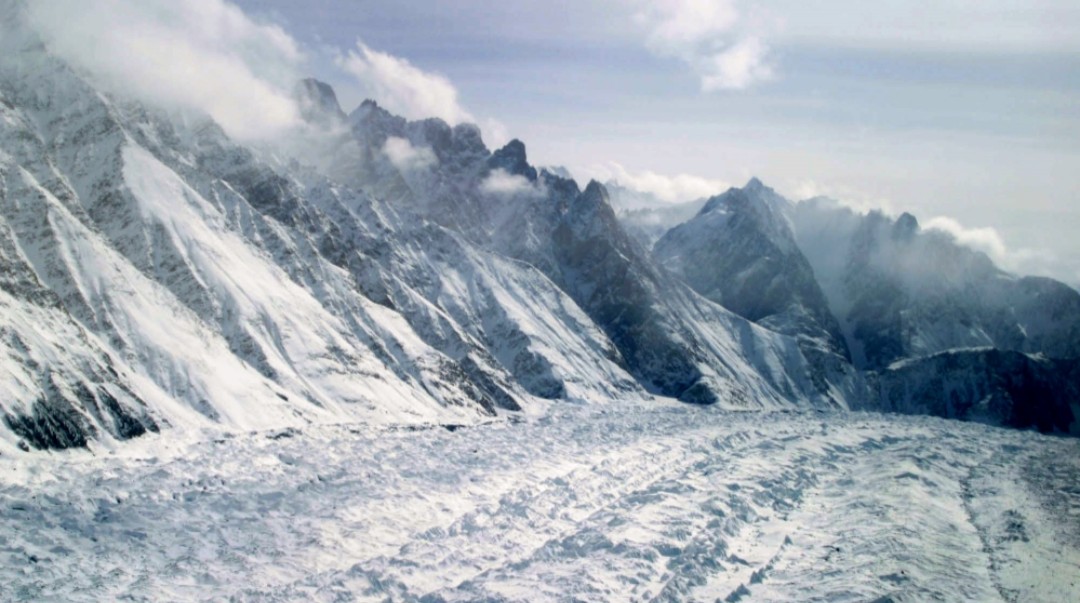Srinagar: In a major concern, glaciers are melting at a rapid pace in Jammu and Kashmir with the government seeming least bothered to take any preventive measures.
The climatic change has become a global phenomenon and it has a significant impact on the ecosystem of Jammu and Kashmir. The melting of glaciers has become a serious issue in Jammu and Kashmir with government seems least interesting in protecting them.
“Kolahoi glacier has rapidly receded due to climatic changes prevalent over the Kashmir region. The glacier has lost 23% area since 1962 (from 13.73 sq km in 1962 to 10.49 sq km in 2018) and has fragmented into smaller parts.
The snout retreat rates also suggest that the glacier has been in an imbalanced state between 1962 and 2018 and is not approaching equilibrium,” a recent research paper has revealed.
Earth scientist and prominent glaciologist, Shakil Ahmad Romshoo, who heads the department of Earth Sciences at University of Kashmir has been one of the authors of the paper.
An official of the Environment Department said that the government has failed to monitor or conduct any research on glaciers in the UT.
“We are yet to know the number of glaciers in Jammu and Kashmir since there are many untapped glaciers and the government is not concerned about their preservation,” the official told news agency Kashmir Indepth News Service.
The official said that current glacial extents are out of balance with current climatic conditions. “It indicates that glaciers will continue to shrink in the future even without further temperature increase,” the official said.
Former Union Environment Minister Jairam Ramesh had said there was a need for more scientific studies to conclusively establish the link between climate change and shrinking glaciers. “Government has taken no steps to conduct any research and know the reasons for the receding of glaciers,” the official said.
The official said that government has paid “no attention” towards environment. “Not only glaciers, every environmental aspect has been ignored here,” he said.
Experts have expressed serious concern over the melting of glaciers in the Valley especially the Thajwas and Kalohai glaciers.
The preservation of glaciers comes under the domain of the Ecology and Environment Department.
In the action plan on climatic changes of the earth science department, it says the climate change cell mentions the annual temperature is projected to increase from 0.9 +/- 0.6 degree Celsius to 2.6 +/- 0.7degree Celsius by 2030.
It has recommended the government to ban the fuel driven vehicles in environment fragile places to restrict melting of glaciers. The action plan has called for the promotion of battery operated (charged from solar power) transport systems in places falling in the vicinity of the glaciers.(KINS)

